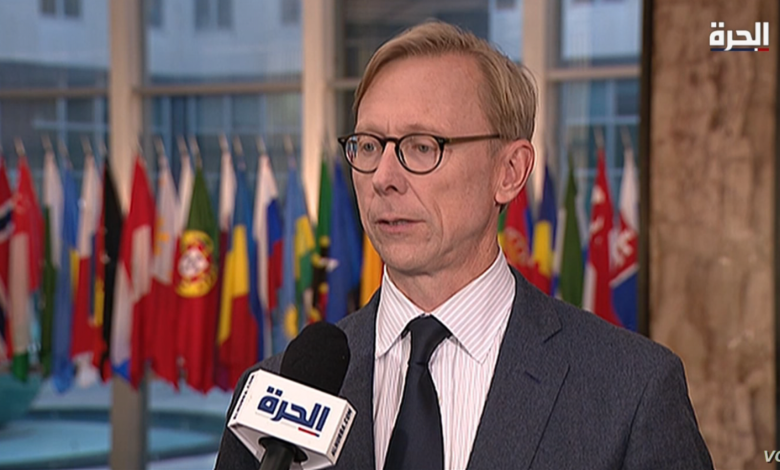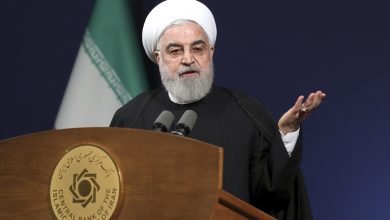
A senior U.S. official has called on Iran to use an official channel to discuss its proposal to exchange several Americans held in Iranian prisons for a number of Iranians detained in the United States.
In a Monday interview Alhurra, U.S. Special Representative for Iran Brian Hook said he would not comment publicly on prisoner swap proposals raised by several Iranian officials in remarks to the media this year.
In the latest such case, Iranian foreign ministry spokesman Abbas Mousavi told an Oct. 21 press briefing that Tehran had given the U.S. a list of detained Iranians whom it wants to be freed and was ready to do a trade. Iranian Foreign Minister Mohammad Javad Zarif previously raised the issue on an April visit to New York, telling an Asia Society forum that he initially had offered the Trump administration a prisoner swap in October 2018 but received no response from Washington.
“We don’t use the media to conduct consular affairs and talk about detainees,” Hook said. “We have a proper channel (for such affairs) that Iran is aware of, through the Swiss government.”
Switzerland has been representing U.S. interests in Iran since 1980, the year after Iranian clerics hostile to the U.S. seized power in an Islamic Revolution. The Nov. 4, 1979, takeover of the U.S. embassy in Tehran by revolution supporters who kept 52 American diplomats hostage for 444 days triggered a rupture in U.S.-Iranian diplomatic relations that has continued ever since.
As a protecting power for the U.S., Switzerland’s Tehran embassy handles all U.S. consular affairs in Iran including U.S. passport applications, changes in civil status, and consular protection for U.S. citizens.
Iran has been holding at least four Americans for security-related offenses that their relatives and supporters have dismissed as trumped-up charges. The detainees include former U.S. soldier Michael R. White, Chinese-American Princeton University researcher Xiyue Wang, and Iranian-American businessman Siamak Namazi and his elderly father Mohammad Bagher Namazi.
A fifth American, retired FBI agent Robert Levinson, went missing in Iran 12 years ago and his family has said they believe he remains in detention there, a contention denied by Tehran.
Hook said Monday’s 40th anniversary of the start of the Iran hostage crisis involving the U.S. embassy personnel serves as a reminder that Tehran has not given up on “hostage taking as a foreign policy tool.”
“They take Americans and dual national citizens from all over the world and put them in prison. It’s wrong for any regime to use innocent people as political pawns,” Hook said.
In one of several gestures toward the families of the American detainees, U.S. Secretary of State Mike Pompeo met with them at the State Department on Monday in a private gathering honoring several surviving former hostages from the U.S. embassy in Tehran.







